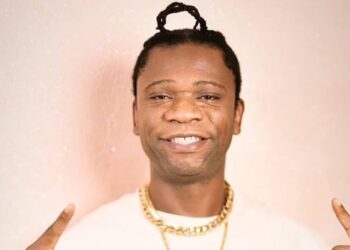Popular Nigerian rapper Chibuzor Nelson Azubuike, better known as Phyno, has opened up about his decision to rap in his native Igbo language rather than in English, a choice that has set him apart in the Nigerian music industry. Speaking on the ‘In My Opinion’ podcast, Phyno delved into his journey as an artist, detailing how he found his voice and niche by embracing his cultural roots rather than conforming to global music trends dominated by Western influences.
Phyno shared that, like many aspiring rappers, his early musical influences came from legendary Western hip-hop artists. He grew up listening to the lyrical prowess of icons such as Busta Rhymes, Jay-Z, 2Pac, and The Notorious B.I.G., absorbing the complex rhyme schemes, wordplay, and storytelling that characterized their music. He explained that in his early years as an artist, he rapped in English, attempting to mirror the style of these Western emcees.
However, as he honed his craft and began to consider his career direction more seriously, Phyno faced a critical realization. He found himself asking what he could uniquely offer in a global music landscape already saturated with English-speaking rappers. “Growing up, I listened to emcees that were very lyrical, like Busta Rhymes, Jay-Z, 2Pac, and Biggie. I had that Western influence in my music, and I was rapping in English too,” Phyno recounted. “But when I got to a point where I had to make a career out of this, I asked myself, ‘What am I going to sell to the world?'”
This question marked a turning point for Phyno. He acknowledged that trying to compete with Western artists in their own language would not set him apart. Instead, he realized the strength of his identity lay in his cultural heritage. He decided to rap in Igbo, blending his lyrical skills with the unique sounds of his mother tongue to create a distinctive musical style that resonates deeply with audiences both in Nigeria and abroad. “If I go to the UK, will I sell English to them? They own the English language,” Phyno noted. “But if I go to America right now, I am selling Igbo to them. That’s what it is. I can’t come to your country and sell what you already have. But if I sell what you don’t have, it will be unique.”
For Phyno, rapping in Igbo was not just a creative decision but also a strategic move to showcase his culture on a global stage. He explained that his music reflects the influences of his upbringing, particularly the highlife sounds he grew up listening to in his neighborhood. Highlife, a genre that blends African rhythms with jazz and brass band music, has deep cultural significance in the southeastern region of Nigeria, where Phyno hails from. This background influenced his musical choices, prompting him to infuse traditional Igbo sounds and themes into his rap.
In addition to his linguistic choice, Phyno has embraced cultural representation in other aspects of his career, including his fashion and personal style. The rapper often appears in traditional Igbo attire, such as the *Isiagu* (a patterned shirt typically worn by Igbo men) and red caps that signify chieftaincy. According to him, this is a deliberate effort to visually represent his heritage and stand out in a music industry filled with Western influences. “I grew up in a highlife-influenced neighborhood. I make sure that I incorporate all the influences into my music and art. I have started wearing the Igbo traditional attire because I have to look different; I have to represent my culture,” he explained.
Phyno’s decision to rap in Igbo has proven to be a defining factor in his career, helping him carve a unique niche in the Nigerian music scene. His hits, such as “Fada Fada,” “Connect,” and “Alobam,” showcase his seamless blend of modern rap with traditional Igbo elements, making his music relatable to a wide audience, particularly in Nigeria’s southeastern region. By rapping in Igbo, Phyno has not only set himself apart from his peers but has also helped elevate the Igbo language in contemporary music, contributing to its preservation and global recognition.
Moreover, Phyno’s choice reflects a broader trend among Nigerian artists who are increasingly incorporating local languages and cultural elements into their music. This movement, spearheaded by artists like Phyno, Olamide, and others, has helped diversify the Nigerian music industry, offering a variety of sounds and styles that appeal to both local and international audiences. By staying true to his roots, Phyno has managed to build a loyal fanbase that appreciates his authenticity and cultural pride.
In a global music industry where many artists feel pressured to conform to Western standards, Phyno’s commitment to rapping in Igbo serves as a reminder of the power of cultural authenticity.



































